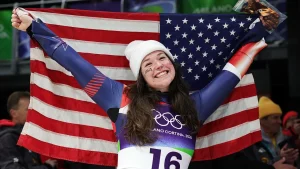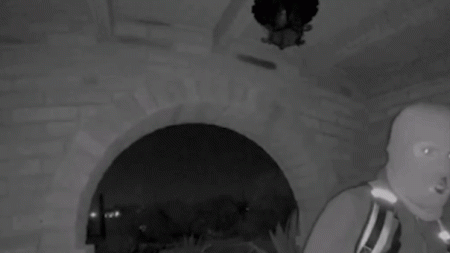Saudi Arabia’s First Comedy Festival Draws American Stars and Controversy
By Sarah Mitchell, International Arts Correspondent
American Comics Take Center Stage in Riyadh, Bringing Domestic Debates to Global Audience
In an unprecedented cultural milestone, Saudi Arabia recently hosted its first international comedy festival, drawing prominent American comedians to the desert kingdom in what organizers called a celebration of global humor. The event, held in Riyadh over four nights, became an unexpected platform for American performers to address controversial topics currently dominating U.S. cultural discourse. While the festival showcased stand-up comedy, improvisation, and sketch performances from around the world, it was the American contingent that captured headlines both for their performances and for their very presence in a country still navigating its complex relationship with Western entertainment values.
Several high-profile American comics delivered routines that directly addressed cancel culture, political correctness, and the boundaries of comedy—issues that have sparked intense debate across the American comedy landscape in recent years. “It was surreal to be discussing the limits of speech in America while performing in Saudi Arabia,” said one headlining comedian who requested anonymity to speak candidly about the experience. “The irony wasn’t lost on any of us.” Festival attendees reported that these routines received enthusiastic responses from the diverse audience, which included Saudi citizens, expatriates, and international visitors. The performers’ willingness to tackle contentious subjects highlighted the complex intersection of comedy, politics, and cultural diplomacy that defined the event. For many Western performers, the opportunity to reach new audiences and test their material in a different cultural context proved professionally valuable, even as it raised questions about their participation.
Cultural Exchange or Reputation Management? Critics Question Festival Motives
Human rights organizations and political analysts have voiced concerns that the comedy festival represents part of a broader strategy by Saudi authorities to reshape international perceptions of the kingdom. Critics point to the timing of the festival—coinciding with reports of continued political detentions—as evidence that cultural events are being deployed as tools of “artwashing,” a term used to describe efforts to divert attention from human rights concerns through artistic and cultural programming. “These high-profile entertainment events are designed to present Saudi Arabia as modernizing and opening up, while the fundamental issues of political freedom remain unaddressed,” said Dr. Elena Michaels, a Middle East policy analyst at the Global Democracy Institute. Multiple international rights organizations issued statements noting that while cultural exchange is valuable, the context of such exchanges cannot be separated from the broader human rights situation in the host country.
Saudi officials firmly rejected these characterizations, with the Ministry of Culture stating that the comedy festival reflected the kingdom’s commitment to “cultural openness and artistic expression” under Vision 2030, the country’s ambitious reform program. “This festival is about bringing people together through laughter and showcasing Saudi Arabia as a destination for world-class entertainment,” said Abdullah Al-Qahtani, a senior festival organizer. “Art and culture have always been bridges between nations.” Government representatives emphasized that the event created employment opportunities for local professionals in the entertainment sector and provided Saudi comedians with valuable exposure to international performers. Several Saudi performers who participated in the festival described it as a transformative experience for the local comedy scene, which has been developing rapidly in recent years despite historical restrictions on public entertainment.
Inside the Festival: Navigating Cultural Boundaries While Pushing Creative Limits
The practical execution of the comedy festival revealed the delicate balance performers had to strike between artistic expression and cultural sensitivity. Organizers provided guidelines to international participants regarding content restrictions, though several comedians noted these were less stringent than they had anticipated. “There was definitely more latitude than I expected,” remarked Jessica Chen, an Asian-American comedian who performed on the second night. “That said, we all understood there were certain lines not to cross.” Topics related to religion, the Saudi royal family, and explicit sexual content remained off-limits, while discussions of gender relations, social media, and even some aspects of politics were approached with careful framing. Performances were not subject to pre-approval, according to multiple participants, though technical teams were prepared to manage audio in case of problematic content.
The venue itself reflected Saudi Arabia’s evolving approach to public entertainment. The purpose-built theater complex featured state-of-the-art sound systems, elaborate lighting, and comfortable seating for several thousand attendees. Security measures were extensive but unobtrusive, with separate seating no longer required for men and women—a significant departure from previous entertainment events in the kingdom. Perhaps most notably, audience composition showed the changing face of Saudi public life, with young Saudi citizens forming the majority of attendees. “The crowd was incredibly engaged and knowledgeable about global comedy,” said British comedian David Harrison. “They got references I wasn’t sure would translate, and their energy was remarkable.” Local food vendors, merchandise booths, and interactive exhibits created a festival atmosphere that extended beyond the performances themselves, making the event feel more accessible and integrated into the urban landscape of Riyadh.
American Comedians Defend Participation While Acknowledging Ethical Complexities
For the American comedians who accepted invitations to perform, the decision was not without controversy. Several faced criticism on social media and from fellow performers who questioned whether their participation legitimized a government with a problematic human rights record. In response, participating comedians offered varied justifications for their presence. “I believe in the power of comedy to create connections across cultural divides,” said veteran stand-up performer Michael Rodriguez. “I’m not endorsing any government by performing for its people.” Others pointed to financial incentives, with appearance fees reportedly ranging from $50,000 to $250,000 for headline acts. Some performers defended their decision by noting they had complete artistic freedom within the established guidelines and used their platform to subtly challenge conventions through their material.
Several American participants addressed the controversy directly in post-festival interviews. “I understand the criticism, and I wrestled with the decision,” admitted comedy writer and performer Alyssa Washington. “But I also saw value in building bridges through humor and exposing Saudi audiences to different perspectives.” Industry observers noted that this ethical dilemma is not unique to Saudi Arabia, as performers regularly navigate similar questions when considering appearances in various countries with controversial policies. The debate highlights the increasingly complex relationship between entertainment, ethics, and global politics in an interconnected world. For younger comedians especially, the festival represented both an unprecedented professional opportunity and a crash course in the geopolitical implications of cultural exchange. “Comedy can be a form of diplomacy,” suggested one first-time international performer. “But that doesn’t mean we shouldn’t question who benefits from these cultural moments and what larger narratives they might serve.”
The Future of International Comedy in Saudi Arabia: Sustainable Cultural Opening or Passing Moment?
As the inaugural festival concluded with a gala performance broadcast on Saudi television and streaming platforms, questions emerged about the future of comedy and broader entertainment initiatives in the kingdom. Festival organizers announced plans to make the event annual, with expanded international participation and year-round comedy programming in multiple Saudi cities. Entertainment industry analysts suggest the success of the comedy festival will likely accelerate Saudi Arabia’s efforts to position itself as a regional hub for cultural events, with significant investments already planned in venue construction and talent development. “This is just the beginning of Saudi Arabia’s entertainment sector expansion,” predicted Mohammed Al-Saud, a cultural investment advisor. “The comedy festival demonstrated both the market demand and the kingdom’s capability to host world-class events.”
However, sustainability questions persist. Long-term success will depend on nurturing local talent, developing supporting infrastructure, and navigating the inherent tensions between creative expression and cultural constraints. The most significant challenge may be addressing the perception gap between Saudi Arabia’s cultural initiatives and international concerns about civil liberties. As one diplomat in attendance observed, “Cultural openings are meaningful, but they exist in a broader context of governance and rights that cannot be separated from the artistic experience.” For the American comedians who participated, the festival offered a complex portrait of a society in transition—one where ancient traditions and rapid modernization create both friction and possibility. As they returned home with stories from this unprecedented cultural experiment, many expressed hope that laughter might serve as a genuine bridge while acknowledging that true cultural exchange requires honesty about the contradictions they witnessed. The debate their participation sparked will likely continue long after the final punchlines have faded, raising essential questions about comedy’s power to both challenge and potentially normalize controversial political realities in a globally connected entertainment landscape.









